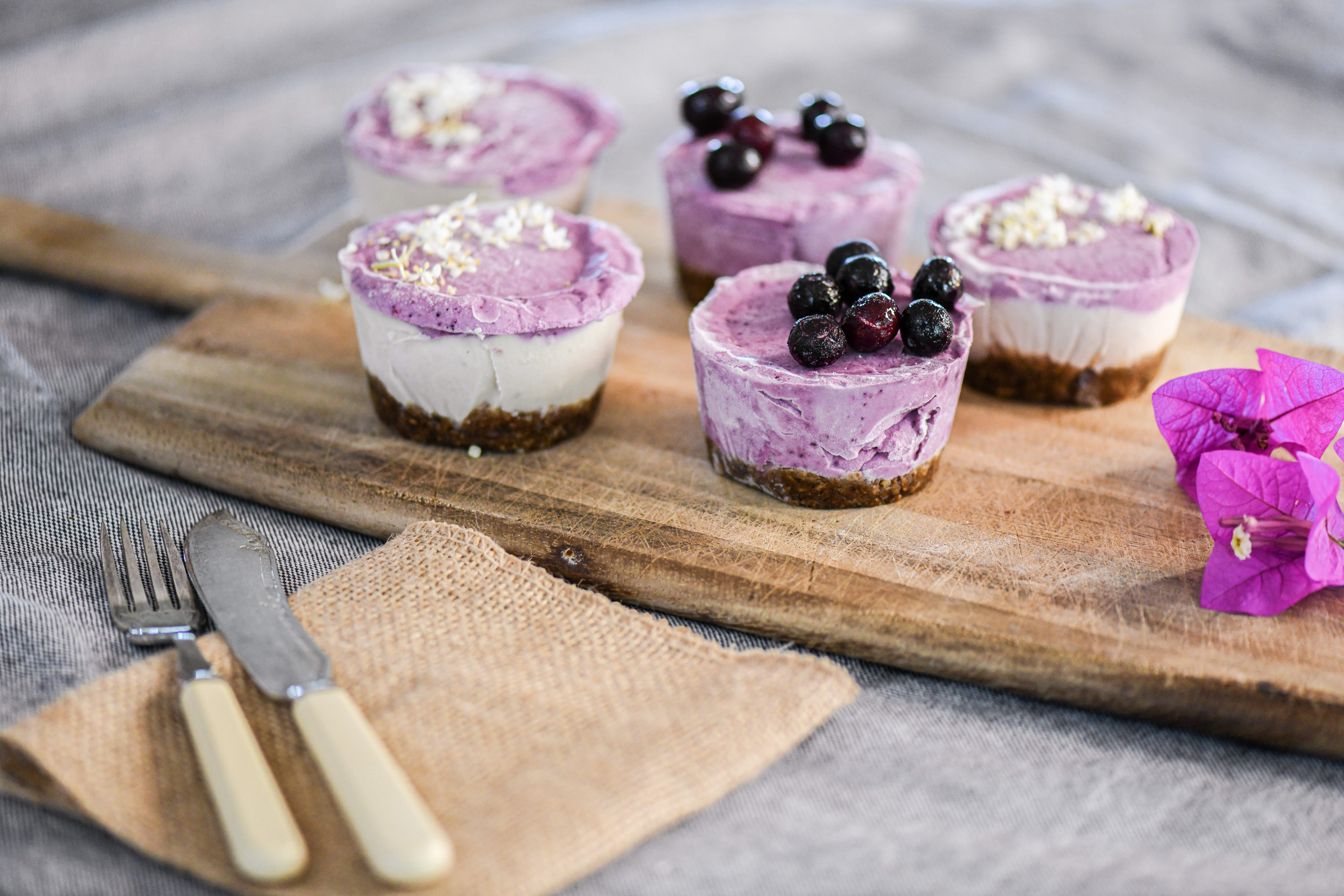Dessert, Done Differently

This has been one of my go-to recipes for years, and for good reason. These mini raw cheesecakes from Minimalist Baker are not only simple and delicious, but they’re also made from real, nourishing ingredients that support both taste and health.
I always choose organic frozen berries, raw cashews, and Medjool dates where possible to reduce our exposure to pesticides and preservatives. The result? A whole food dessert that’s free from refined sugars, additives, or artificial sweeteners. It is full of fibre, healthy fats, and has a naturally sweet flavour. Perfect for when you want a little indulgence without the compromise.
Recipe
Ingredients:
CRUST
1 cup packed pitted dates*
1 cup raw walnuts
FILLING
1 1/2 cups raw cashews (quick-soaked*)
1 large lemon (juiced // 1 lemon yields ~scant 1/4 cup or 50 ml)
1/3 cup coconut oil (melted)
2/3 scant cup full-fat coconut milk (see instructions for note)
1/2 cup agave nectar or maple syrup (or honey if not vegan)
FLAVOR ADD-INS optional
2 Tbsp salted natural peanut butter
1/4 cup wild blueberries (fresh or frozen)
Why This Recipe is a Liver Loving Superstar
This no-bake cheesecake-style dessert is packed with ingredients that nourish and support liver function while avoiding the common culprits that contribute to liver burden, such as refined sugars, preservatives, and processed fats. Here’s why each ingredient plays a role in making this recipe a superstar for liver health:
1. Cashews (Raw & Soaked) - A Nutrient-Dense Powerhouse
Cashews are rich in healthy monounsaturated fats, which help reduce inflammation and support liver cell integrity. They also provide magnesium, zinc, and copper, all essential for enzymatic functions and detoxification pathways in the liver. Soaking them enhances nutrient bioavailability and makes them easier to digest, reducing stress on the gut-liver axis.
2. Dates - Nature’s Liver-Friendly Sweetener
Unlike refined sugars, which contribute to insulin resistance and fatty liver, dates are a natural source of fiber, potassium, and polyphenols, all of which support liver function. Dates help regulate blood sugar, reducing the risk of Metabolic Dysfunction-Associated Steatotic Liver Disease (MASLD), a growing concern among high-performing business professionals with stressful lifestyles.
3. Walnuts - Omega-3 Rich Liver Protectors
Walnuts are an incredible source of omega-3 fatty acids, antioxidants, and polyphenols, all of which help reduce liver inflammation and oxidative stress. They have been shown to improve liver enzyme levels and support bile flow, which is essential for digestion and toxin elimination.
4. Lemon Juice - Alkalising & Detoxifying
Lemon is packed with vitamin C, a potent antioxidant that supports glutathione production, the liver’s master detoxifier. It also stimulates bile production, aiding digestion and the breakdown of dietary fats, which prevents congestion in the liver.
5. Coconut Oil - Supporting Fat Metabolism
The medium-chain triglycerides (MCTs) in coconut oil provide a readily available energy source that doesn't tax the liver. MCTs also have antimicrobial properties, supporting gut health, which is crucial for reducing systemic inflammation and liver overload.
6. Coconut Milk – Nutrient-Rich & Anti-Inflammatory
Coconut milk is rich in healthy fats and lauric acid, which support liver function and have anti-inflammatory benefits. The absence of dairy in this recipe also makes it easier on digestion, reducing gut-liver stress.
7. Maple Syrup, Agave, or Honey - Liver-Friendly Sweeteners
Unlike refined sugar, these natural sweeteners contain minerals, antioxidants, and lower glycemic index values, which help prevent blood sugar spikes and reduce the risk of insulin resistance, a key driver of MASLD.
8. Wild Blueberries - Antioxidant & Liver-Protective Superfood
If you choose to add blueberries, you're giving your liver an extra boost. Wild blueberries are high in anthocyanins, which protect liver cells from oxidative stress and enhance liver detoxification pathways. Studies have shown that blueberry extracts help improve liver enzyme levels and reduce fatty liver accumulation.
9. Peanut Butter (Optional) - Nutrient-Dense Addition
If you opt for natural peanut butter, it adds healthy fats, vitamin E, and plant-based protein, which help keep blood sugar stable. However, ensure it's organic and free from added sugars or hydrogenated oils to keep it truly liver-friendly.